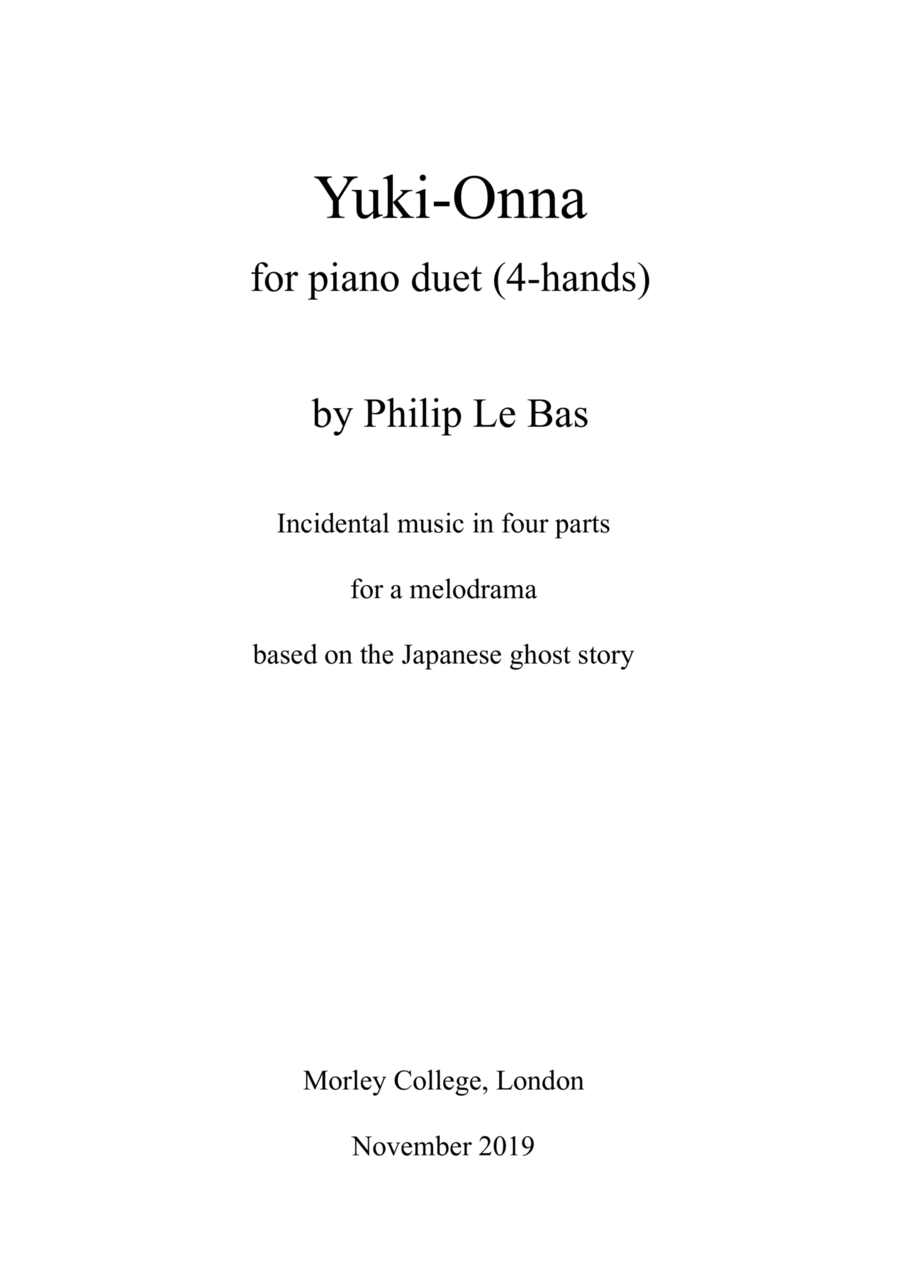1 Piano,4 Hands,Piano Duet - Level 4 - Digital Download SKU: A0.1127872 Composed by Philip Le Bas. Chamber,Classical,Contemporary,Multicultural,World. Score. 12 pages. Philip Le Bas #728481. Published by Philip Le Bas (A0.1127872). Incidental music composed for piano duet (4-hands) in four parts by Philip Le Bas to accompany the Japanese folk tale (ghost story) Yuki-Onna (Snow Woman). This piano duet developed out of a cross-cultural project initiated at Morley College, London, in early 2019, aiming to create a melodrama for piano solo and spoken voice to be performed in northern Japan later in the year by young students of the piano. It is based on the ghost-story above, which is widely known in Japan. The tale was transcribed and published by Lafcadio Hearn (Koizumi Yakumo) in 1904 as part of his book âKwaidan: Stories and Studies of Strange Thingsâ, a collection that has been highly influential in expressing popular Japanese culture over the past century. Synopsis of the tale of Yuki-Onna: Two wood-cutters, Mosaku and his apprentice Minokichi, encounter a terrible snow-storm and take shelter in an empty hut by a river. The storm gets worse and worse, but they both finally fall asleep. When Minokichi wakes, he sees a woman all in white bending over Mosaku breathing bright white smoke onto his face. She then approaches Minokichi. She is very beautiful, but her eyes make him afraid. After a while she says, âI intended to do the same to you as I did to the old man, but I feel pity for you because you are a pretty young man. If you ever tell anybody what you have seen, however, I will kill you too.â And she vanishes into the snow storm. It is then that Minokichi discovers Mosaku dead on the floor of the hut. Years later Minokichi meets a beautiful girl, who calls herself O-Yuki. He falls in love with her and they live together in his house, along with his mother, who fortunately takes a liking to her new âhonourable daughter-in-law.â Over the years O-Yuki gives birth to ten children and the villagers all agree that she is a wonderful person. But she is somehow different from them, as she continues to look young and fresh, despite the passing years. Minokichi often thinks of telling O-Yuki about the events of years ago, and eventually, as he is gazing at her beauty one night, he can resist it no more. He begins to tell her about the snow storm and the terrifying snow-woman. To his horror O-Yuki becomes more and more angry, and she finally says: âIt was me, it was me,⦠and I said I would kill you if you ever told anyone! But for these children asleep here, I would do so this very moment! You had better take very good care of them; for if ever they have reason to complain of you, I will treat you as you deserve!â As she screams at him her voice becomes thin, like the crying of the wind, and she melts into a bright white mist spiraling into the roof-beams. At that moment it starts to snow, but O-Yuki is never seen again.
